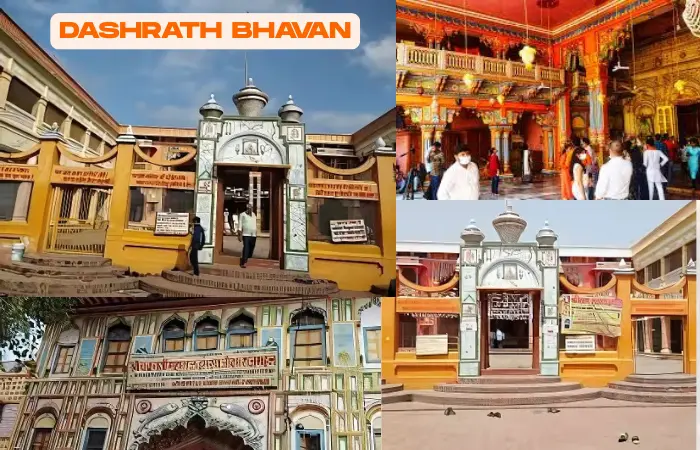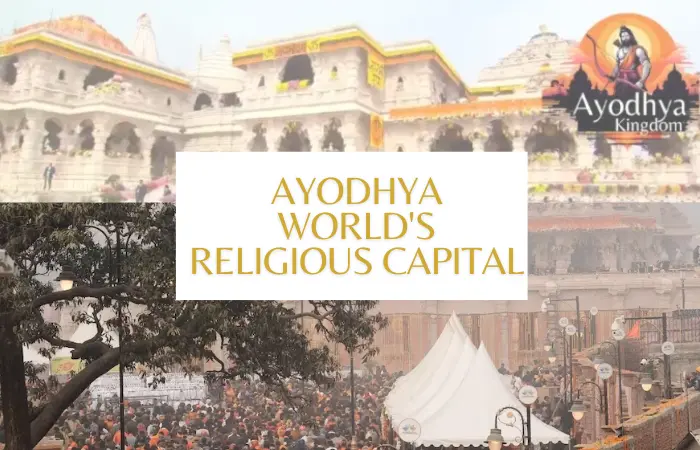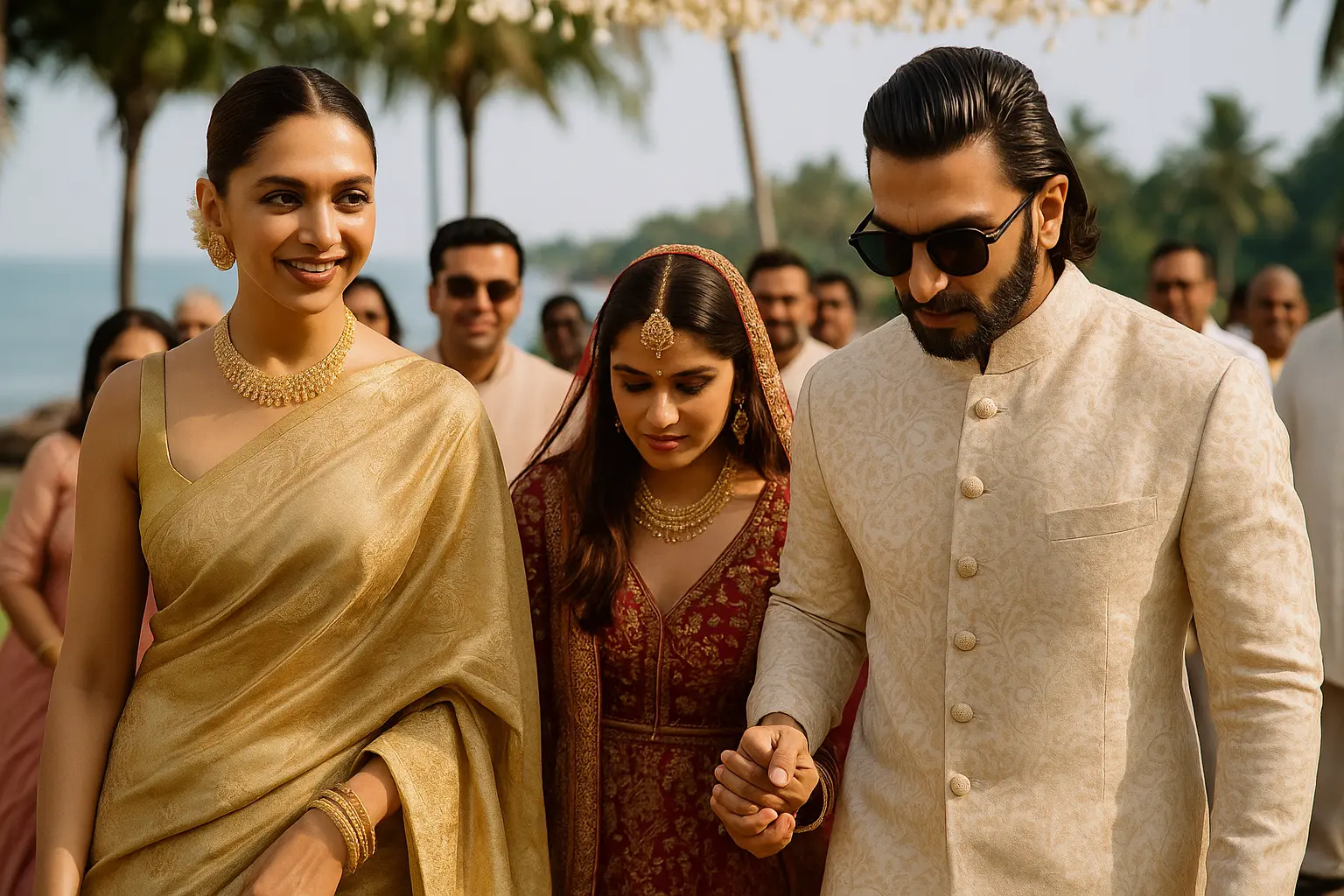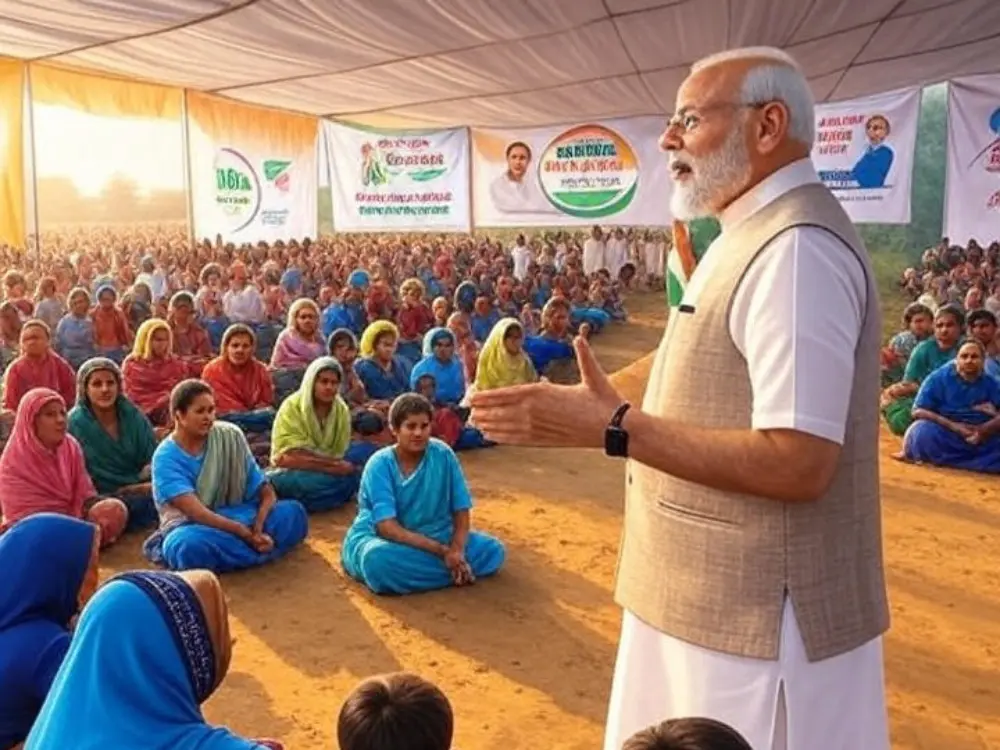Dashrath Bhavan Known as Badi Jagah or Bada Asthan by locals, It is believed to be the royal palace of King Dashrath, the father of Lord Ram is believed to be the sacred home where Lord Ram and his brothers spent their childhood.. People visit this temple not just to offer prayers, but to connect with the values and memories of the Ramayana — an epic that shaped Indian culture and belief systems. Today, it’s a beloved pilgrimage spot, especially alive during major festivals like Ram Navami.
This temple is located in the busy yet divine Ramkot area of Ayodhya and is considered a peaceful spiritual center. Dashrath Bhavan is not just a religious place. It’s a spot where history, devotion, art, and architecture come together.
Table of Contents
ToggleTemples in India – More Than Just Worship
Indian temples are often misunderstood as only places of worship. But in truth, they serve many purposes:
- Cultural Centers: They are spaces where stories are passed down, festivals are celebrated, and classical music and dance flourish.
- Art and Architecture: Every temple has its own style, carvings, pillars, and murals that tell stories.
- Historical Significance: Temples preserve ancient traditions, inscriptions, and the way of life from thousands of years ago.
- Pilgrimage Spots: They offer mental peace and a connection to divine energy for millions of devotees.
Temples like Dashrath Bhavan help us reconnect with our roots, understand our past, and experience spiritual calm.
History of Dashrath Bhavan – The Royal Story Behind the Shrine
Dashrath Bhavan stands at a location believed to be the royal residence of King Dashrath, the ruler of Kosala Kingdom and father of Lord Ram. According to the Ramayana, this was where Lord Ram, Lakshman, Bharat, and Shatrughna spent their childhood.
While the original palace structure doesn’t exist anymore, the current structure honors the spiritual memory of that era. The palace-turned-temple is decorated with murals from Ramayan and idols of Lord Ram and his brothers, along with devotional singing (bhajans) throughout the day.
The temple also reflects the ancient Hindu royal architectural style, combining tradition with devotion.
Temple Architecture in India – The Story in Stone
Temples in India were built differently across regions and time periods. Here’s a brief timeline:
Major Dynasties and Temple Contributions
| Dynasty | Period | Contributions |
|---|---|---|
| Maurya | 3rd Century BCE | Cave temples and early stone work |
| Gupta | 4th–6th Century | Hindu and Buddhist temples with basic towers |
| Chalukya & Pallava | 6th–9th Century | Rock-cut temples and early Dravidian style |
| Chola | 9th–13th Century | Massive Dravidian temples like Brihadeeswarar |
| Mughal-Maratha | 16th Century+ | Restoration and fusion temple styles |
Dashrath Bhavan reflects Rajput and North Indian temple influences, with beautiful domes, pillars, and archways.
Famous Temples in Ayodhya & Their Importance
Ayodhya is a land of many temples. Each one tells a part of Lord Ram’s story.
| Temple | Importance |
|---|---|
| Ram Janmabhoomi | Birthplace of Lord Ram; now home to the grand Ram Mandir |
| Hanuman Garhi | Dedicated to Lord Hanuman; believed to guard Ayodhya |
| Kanak Bhavan | Palace gifted to Sita by Queen Kaikeyi; idols of Ram-Sita in royal attire |
| Nageshwarnath | Built by Kush, son of Ram; linked to Shiva worship in Ayodhya |
| Treta Ke Thakur | Built where Ram performed Ashwamedha Yajna; contains ancient black stone idols |
These temples together form a spiritual circuit for pilgrims and tourists.
Architectural Features of Dashrath Bhavan
Dashrath Bhavan is not a massive temple but holds royal and spiritual charm in its design:
- Ornate Arched Gateway: A grand entry that resembles royal forts.
- Domes and Towers: Typical of North Indian palace-style temples.
- Courtyard Design: Spacious inner yard used for bhajans, rituals, and prayers.
- Murals & Wall Art: Colorful paintings of Lord Ram’s childhood stories.
- Devotional Atmosphere: Bhajans and chants are played regularly.
It is a simple yet deeply sacred structure, blending royalty and religion.
Travel Guide – Visiting Dashrath Bhavan
Location & Connectivity
- City: Ayodhya, Uttar Pradesh
- Nearest Railway Station: Ayodhya Dham Junction (Approx. 2 km)
- Nearest Airport: Shri Ram International Airport (Approx. 9 km)
Distance from Major Cities
| City | Distance |
|---|---|
| Lucknow | 135 km |
| Varanasi | 200 km |
| Prayagraj | 160 km |
| Gorakhpur | 135 km |
Best Time to Visit
- October to March: Pleasant weather for sightseeing.
- Festivals: Ram Navami (Lord Ram’s birthday), Diwali, and Kartik Purnima are grandly celebrated.
Dashrath Bhavan Timings
| Session | Time |
|---|---|
| Morning Darshan | 6:00 AM – 12:00 PM |
| Evening Darshan | 4:00 PM – 9:00 PM |
Is Dashrath Bhavan the actual palace of King Dashrath?
Yes it is believed to stand at the same spiritual location where King Dashrath’s palace was during Ramayan times.
What is the best time to visit Dashrath Bhavan?
October to March, especially during Ram Navami or Diwali, is the best time due to pleasant weather and festive energy.
Are there entry charges?
No, entry is free for all. Donations are optional.
Is the temple crowded?
It’s peaceful on weekdays, but expect a large crowd during festivals and weekends.













